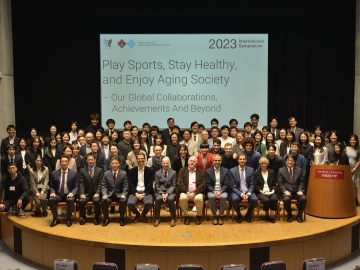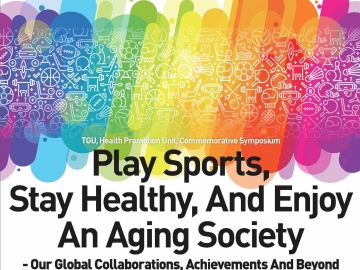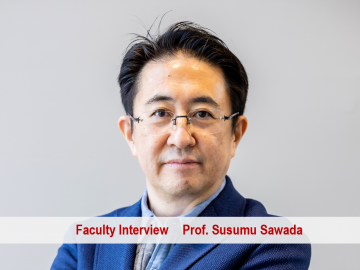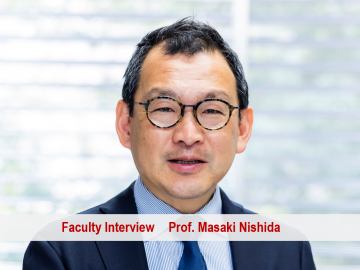
Investigating the Physical Changes and Physiological Mechanisms Associated with Exercise
Research results are intellectual property that serves society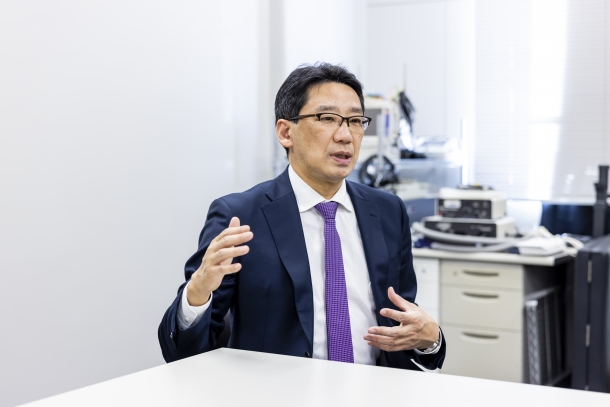
Our lab specializes in exercise physiology. A major theme of our work is the regulation of the nervous system during circulatory-system response to exercise. Our aim is to accumulate our research results as intellectual property, or simply as knowledge that people find interesting, and develop that knowledge in ways that benefit society.
One recent example of our research involves blood circulation in the fundus of the eye, which is a factor in loss of visual acuity. During exercise, blood flow in front of and behind the retina changes in different ways. In another study, we looked at increases in cerebral blood flow when we listen to a musical performance, which is known to improve cognitive function. Another study demonstrated that thorough chewing of food, even liquid food, increases energy consumption afterward. We expect new methods of weight loss to be developed based on these research results.
Scientifically Deciphering “Sport Creativity”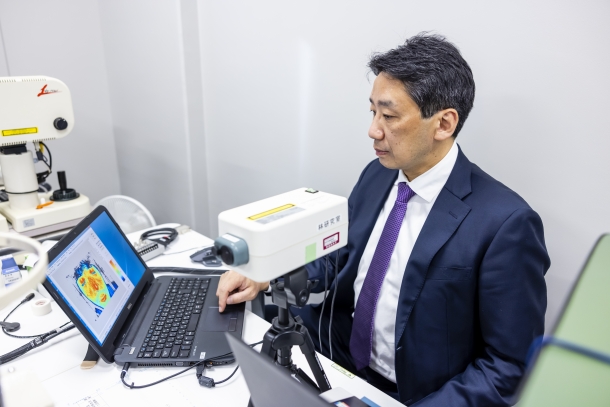
Going forward, what our lab is going to focus on with a long-term perspective is “research on sport creativity.” In sports, there are moments of play so exciting that they give us goosebumps. That creativity literally makes spectators’ hearts beat faster. We are trying to unravel the mechanism of that phenomenon from a scientific point of view. If this research makes progress, it may lead to the formation of environments that stimulate creative play, or the development of new training regimens. Some of our students are already starting to write theses based on this perspective.
The teaching approach at my lab is to emphasize dialogue, respecting students’ opinions and approaches. Instead of engaging in a one-way flow of information, we discuss talk about ideas with students, working with them to create good ideas together. We also support students in developing universal academic skills such as reading, writing and analysis, through the process of research. After our students obtain their Master’s or doctoral degrees, whether they choose a career in research or join the private sector, the ability to gather information themselves, think deeply about and explain their findings is essential.
Why the Faculty of Sport Sciences Attracts So Many Researchers and Students
Sport science borders on a wide range of other fields. It has deep connections with many disciplines, including medicine, engineering, sociology, psychology, economics and education. Cases abound of fruitful joint research straddling two or more fields. For this reason, Waseda University’s Faculty of Sport Sciences includes researchers with backgrounds in the natural sciences as well as the humanities and social sciences. This diversity of academic backgrounds is one of the most compelling attractions of the Faculty.
Another great attraction for Waseda University is the many superb athletes here whose aim is to be the best in Japan, or even the world, in their sport. When I was a student here at Waseda, the feats of our top athletes were an enormous inspiration to me. They motivated me to pursue my current path of research in sport creativity.
It’s wonderful that the Faculty of Sport Sciences attracts so many international students, and that so many join us with a strong determination that “This is what I want to study!” At the same time, it’s vitally important that people continue to extend their interest and curiosity beyond their areas of specialization. When they complete their studies, I want our students to have learned a wide range of viewpoints and scientific knowledge, so that they can be not only specialists in exercise physiology or sport science but also knowledgeable about science in general.
Profile
Professor Hayashi specializes in exercise physiology and health science. After graduating from Waseda University’s School of Human Sciences, he stayed with Waseda to complete a doctoral Master’s degree in human sciences. He holds a doctoral degree in Medicine from Osaka University. After serving as an assistant professor at Osaka University, Professor Hayashi became a visiting professor at the University of California at Davis, then assistant professor and associate professor at Kyushu University, then full professor at Tokyo Institute of Technology. He accepted his current post in April 2021.
Related faculty interview articles
- Interview article on Associate Professor Masaki Nishida of our Faculty of Sport Sciences on the theme of “Pursuing Wellbeing by Elucidating the Relationships Among Sleep, Sports and Mental Health.” To learn more, read the article here!
- Interview article on Professor Susumu Sawada of our Faculty of Sport Sciences on the theme of “Contributing to People’s Health and Happiness by Promoting and Encouraging Physical Activity through Research in Sports Epidemiology.” To learn more, read the article here!
